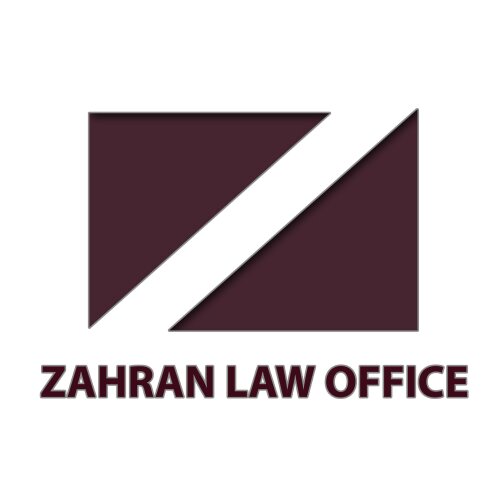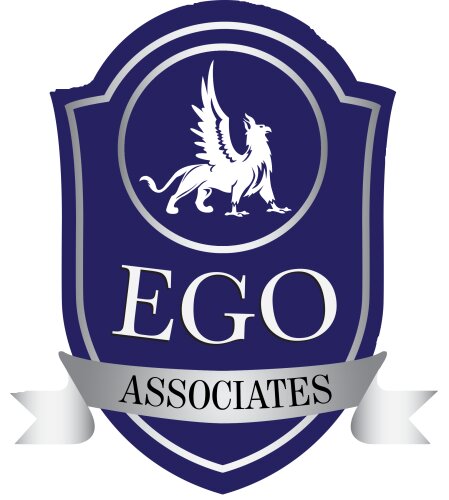Best Structured Finance Lawyers in Egypt
Share your needs with us, get contacted by law firms.
Free. Takes 2 min.
Or refine your search by selecting a city:
List of the best lawyers in Egypt
About Structured Finance Law in Egypt
Structured finance in Egypt refers to complex financial transactions that use tailored legal and financial structures to manage risk, enhance liquidity, or facilitate large investments. This field involves instruments such as securitization, syndicated loans, asset-backed securities, project finance, and collateralized debt obligations. The main goal of structured finance is to allow companies, banks, and sometimes government entities to optimize their capital structure or fund large projects by pooling assets and issuing securities based on the cash flows from these assets.
In Egypt, structured finance has grown in prominence, especially as the government encourages private sector funding for infrastructure projects and seeks diverse sources of capital. The legal and regulatory framework is evolving to keep pace with international standards, but local specifics and regulatory nuances remain important.
Why You May Need a Lawyer
Structured finance transactions are inherently complex and require specialist knowledge of Egyptian law, international finance, and related regulatory issues. You may need a lawyer in the following situations:
- Advising on the structuring, negotiation, and documentation of complex financial deals
- Ensuring compliance with local and international regulations
- Conducting due diligence on assets to be securitized or pledged
- Handling disputes or litigation arising from financial transactions
- Advising on tax implications and optimal structuring for cross-border deals
- Obtaining approvals from regulatory bodies such as the Egyptian Financial Regulatory Authority (FRA)
- Assisting with trust arrangements and security interests required for project finance
Given the sophistication and potential legal exposure in these transactions, experienced legal counsel helps protect your interests and ensures transactions are enforceable under Egyptian law.
Local Laws Overview
Several local laws and regulations are particularly important for structured finance in Egypt:
- The Capital Market Law and its Executive Regulations govern securities offerings, asset-backed securities, and ensure investor protection
- The Securitization Law (Law No. 95 of 1992, as amended) enables companies to pool financial assets and issue tradable securities
- The Central Bank and Banking Law regulates how banks participate in structured finance and sets restrictions on credit and risk management
- The Companies Law addresses the legal capacity and approvals required by Egyptian companies for entering such transactions
- The Financial Regulatory Authority (FRA) supervises and approves most structured finance activities, including licensing securitization companies
- Bankruptcy and insolvency laws shape creditor priority and asset realization in default scenarios
These regulations intend to safeguard the interests of investors, originators, and the broader financial system, while ensuring transparency and legal certainty in structured transactions.
Frequently Asked Questions
What is securitization, and is it allowed in Egypt?
Securitization is the process of pooling financial assets like loans or receivables and issuing securities backed by their cash flows. It is permitted in Egypt and is regulated by the Capital Market Law and the Securitization Law.
Who regulates structured finance transactions in Egypt?
The Financial Regulatory Authority (FRA) is the primary regulator for most structured finance activities, including approvals, licensing, and ongoing oversight.
Can foreign investors participate in structured finance deals in Egypt?
Yes, Egypt generally allows foreign investors to participate, but certain sectors may have restrictions. Legal advice is vital to ensure compliance with foreign investment regulations.
What assets can be securitized under Egyptian law?
Commonly securitized assets include receivables, mortgage loans, lease payments, and future cash flows from projects. However, all assets must meet regulatory criteria and be approved by the FRA.
How does structured finance differ from traditional financing?
Traditional finance commonly involves direct loans or bonds. Structured finance uses specially created entities and security arrangements to redistribute risk, often using more complex legal and financial structures.
What are the key risks in structured finance transactions in Egypt?
Risks include asset performance, legal enforceability, regulatory changes, counterparty defaults, and bankruptcy of originators or borrowers.
Is court approval needed for securitization?
Court approval is not usually required, but regulatory approval from the FRA is mandatory for most structured finance and securitization activities.
How are disputes in structured finance transactions resolved?
Disputes are typically subject to the dispute resolution clauses in the contract, which may involve Egyptian courts or arbitration, depending on the parties' agreement.
Are there specific tax implications for structured finance in Egypt?
Yes, tax treatment of asset transfers, interest, and security income differs and proper planning is essential. Consultation with a tax lawyer is highly recommended.
What role do special purpose vehicles (SPVs) play in Egyptian structured finance?
SPVs are used to separate financial assets from the originator's balance sheet and issue securities to investors. Their formation and operation are strictly regulated to ensure independence and protect investors.
Additional Resources
If you are seeking further information or need assistance with structured finance in Egypt, the following organizations and resources may help:
- Egyptian Financial Regulatory Authority (FRA): Oversees capital markets, securities, and structured finance transactions
- Central Bank of Egypt: Regulates banking activities and monitors risk in the financial system
- Egyptian Stock Exchange: Provides information on securitized securities and listed financial products
- Chamber of Commerce and Business Councils: These bodies sometimes offer seminars or guidance on financial matters relevant to businesses
- Professional legal associations: For recommendations on specialized law firms or experts in structured finance
Next Steps
If you need legal assistance in the area of structured finance in Egypt, consider taking the following next steps:
- Identify the nature and scope of the transaction or issue you are facing
- Gather all relevant documents, contracts, and background information
- Consult a lawyer or law firm experienced in structured finance and familiar with Egyptian law and regulations
- Request an initial assessment of your legal needs, potential risks, and available options
- Cooperate with your legal advisor to ensure compliance with the relevant regulatory bodies and obtain necessary approvals
- Stay informed about changes in local laws and regulatory requirements that could affect your transaction
Engaging a specialized legal expert early in the process helps ensure that your interests are protected, your transaction is structured effectively, and you comply with all relevant legal and regulatory requirements in Egypt.
Lawzana helps you find the best lawyers and law firms in Egypt through a curated and pre-screened list of qualified legal professionals. Our platform offers rankings and detailed profiles of attorneys and law firms, allowing you to compare based on practice areas, including Structured Finance, experience, and client feedback.
Each profile includes a description of the firm's areas of practice, client reviews, team members and partners, year of establishment, spoken languages, office locations, contact information, social media presence, and any published articles or resources. Most firms on our platform speak English and are experienced in both local and international legal matters.
Get a quote from top-rated law firms in Egypt — quickly, securely, and without unnecessary hassle.
Disclaimer:
The information provided on this page is for general informational purposes only and does not constitute legal advice. While we strive to ensure the accuracy and relevance of the content, legal information may change over time, and interpretations of the law can vary. You should always consult with a qualified legal professional for advice specific to your situation.
We disclaim all liability for actions taken or not taken based on the content of this page. If you believe any information is incorrect or outdated, please contact us, and we will review and update it where appropriate.
Browse structured finance law firms by city in Egypt
Refine your search by selecting a city.
















